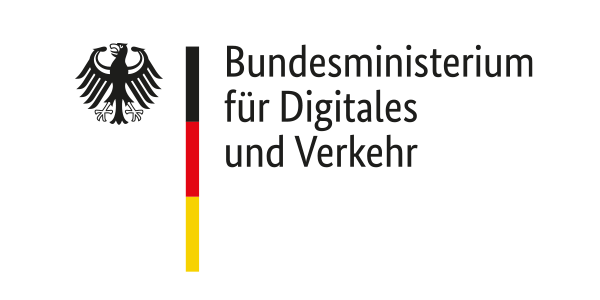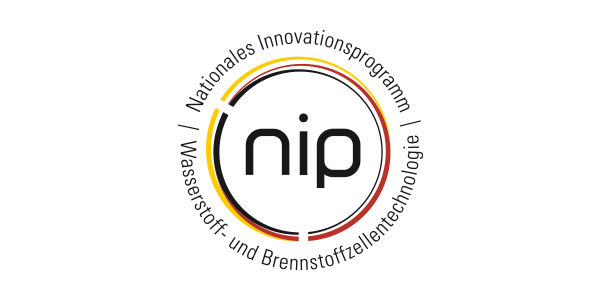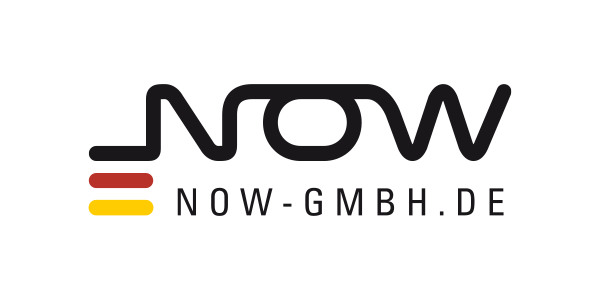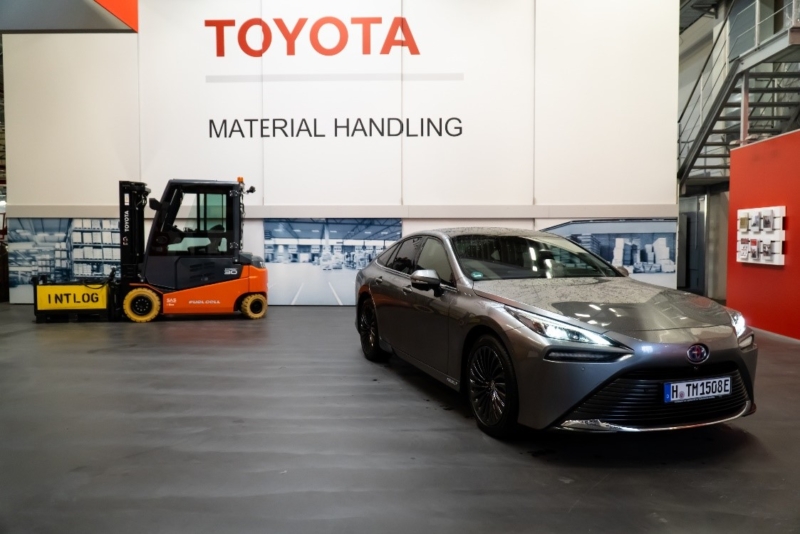
In the automotive sector, Toyota is considered a pioneer and innovation leader in alternative drive systems in the areas of electric, hybrid and fuel cell technology. The world’s first fuel cell passenger car – Toyota Mirai – has been in production since 2014. The second generation of the sedan will be launched in Europe this year. Fuel cell technology is becoming increasingly important in Germany. As part of the national hydrogen strategy, various federal ministries are driving development forward. The flexible energy carrier is indispensable for the energy turnaround and has even been described by the German government as a future technology of the highest importance. To promote the development of an internationally competitive hydrogen economy, the German government is providing nine billion euros in funding. The mood of optimism is also reaching the transport and logistics industry. But while the commercial vehicle industry for road freight transport in Europe is largely still in the development phase, fuel cell technology for industrial trucks is already in use.
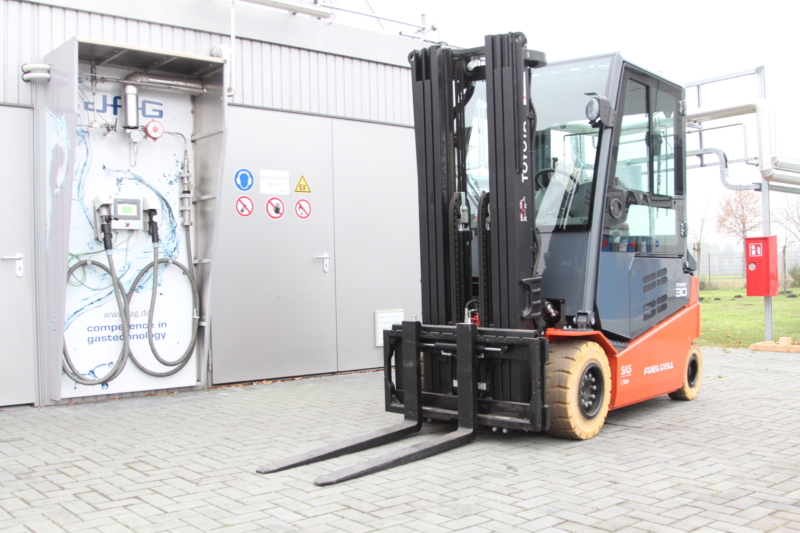 The fuel cell converts hydrogen to water with the help of atmospheric oxygen. During this chemical reaction, electrical energy is released to drive electric motors. The heart of the hydrogen drive for industrial trucks is the fuel cell system, consisting of the fuel cell stack, the hydrogen tank (350 bar), an energy storage unit in the form of a smaller lithium-ion battery and the fan. The battery is used to temporarily store energy that is not required or that is obtained through recuperation and to make it available again quickly during peak loads. Designed into a cast frame the size of a traditional lead-acid battery, the system is relatively easy to install in a conventional electric forklift with minor modifications.
In the USA, Toyota Material Handling and its subsidiaries have already implemented projects with up to 500 units. Users include companies in the food industry, the automotive industry, mail order and logistics, as well as airports and ports. But customers in France, Norway and Finland are also already operating fleets of industrial trucks with hydrogen. For years, Toyota Material Handling has been gaining practical experience with fuel cell technology at its own manufacturing facilities in Japan and Italy. The plant for masts in Ferrara, Italy, serves as a pilot plant. This is where important insights are gained for customer projects – both from practical tests with the company’s own hydrogen forklift fleet and from cooperation with partners in the planning and demand-driven development of the hydrogen infrastructure.
Favorable general conditions
The current upswing in fuel cell applications in other industries as well – above all in the commercial vehicle segment – will provide an impetus for the expansion of the hydrogen infrastructure in Germany and Europe and further reduce the price of hydrogen and thus the operating costs for fuel cell trucks. To this end, energy suppliers are currently developing various solutions to transport and store hydrogen or to generate it on site from renewable energy. In addition, the German Federal Ministry of Transport and Digital Infrastructure (BMWi) is funding companies as part of the “National Hydrogen and Fuel Cell Technology Innovation Program” to drive forward the expansion of hydrogen-powered fleets and the refueling infrastructure.
Hydrogen is becoming cheaper and cheaper
While the cost of electricity in Germany is continuously rising, the price of hydrogen is falling as production volumes increase, also due to publicly funded green hydrogen projects. In addition, the larger the fuel cell fleet and the more operating hours per unit, the better the distribution of investments in the hydrogen infrastructure and the costs for its regular maintenance. Thus, a large fleet with a high utilization rate contributes to a faster payback of costs. As a project planning and implementation partner, Toyota Material Handling Germany not only offers the broadest portfolio of industrial trucks, but also has numerous project experiences and a network of competent planners, experts and suppliers for the hydrogen infrastructure.
Headquarters in Isernhagen
Toyota Material Handling’s German marketing and sales organization is headquartered in Isernhagen near Hanover. The industrial trucks from European production – with plants in France, Italy and Sweden – are delivered here and reconditioned in the company’s own workshop for the German market. Already 90 percent of Toyota Material Handling’s forklift portfolio is available with fuel cell technology. The topic of hydrogen is also becoming increasingly important in the Hannover Region. For the automotive sector, two filling stations in Hanover currently offer refueling with hydrogen. Reason enough for Toyota Material Handling to expand its fleet of company cars with the new second-generation Toyota Mirai. Fuel cell forklifts can be refueled by the company at JA Gastechnology GmbH in Kleinburgwedel.
The fuel cell converts hydrogen to water with the help of atmospheric oxygen. During this chemical reaction, electrical energy is released to drive electric motors. The heart of the hydrogen drive for industrial trucks is the fuel cell system, consisting of the fuel cell stack, the hydrogen tank (350 bar), an energy storage unit in the form of a smaller lithium-ion battery and the fan. The battery is used to temporarily store energy that is not required or that is obtained through recuperation and to make it available again quickly during peak loads. Designed into a cast frame the size of a traditional lead-acid battery, the system is relatively easy to install in a conventional electric forklift with minor modifications.
In the USA, Toyota Material Handling and its subsidiaries have already implemented projects with up to 500 units. Users include companies in the food industry, the automotive industry, mail order and logistics, as well as airports and ports. But customers in France, Norway and Finland are also already operating fleets of industrial trucks with hydrogen. For years, Toyota Material Handling has been gaining practical experience with fuel cell technology at its own manufacturing facilities in Japan and Italy. The plant for masts in Ferrara, Italy, serves as a pilot plant. This is where important insights are gained for customer projects – both from practical tests with the company’s own hydrogen forklift fleet and from cooperation with partners in the planning and demand-driven development of the hydrogen infrastructure.
Favorable general conditions
The current upswing in fuel cell applications in other industries as well – above all in the commercial vehicle segment – will provide an impetus for the expansion of the hydrogen infrastructure in Germany and Europe and further reduce the price of hydrogen and thus the operating costs for fuel cell trucks. To this end, energy suppliers are currently developing various solutions to transport and store hydrogen or to generate it on site from renewable energy. In addition, the German Federal Ministry of Transport and Digital Infrastructure (BMWi) is funding companies as part of the “National Hydrogen and Fuel Cell Technology Innovation Program” to drive forward the expansion of hydrogen-powered fleets and the refueling infrastructure.
Hydrogen is becoming cheaper and cheaper
While the cost of electricity in Germany is continuously rising, the price of hydrogen is falling as production volumes increase, also due to publicly funded green hydrogen projects. In addition, the larger the fuel cell fleet and the more operating hours per unit, the better the distribution of investments in the hydrogen infrastructure and the costs for its regular maintenance. Thus, a large fleet with a high utilization rate contributes to a faster payback of costs. As a project planning and implementation partner, Toyota Material Handling Germany not only offers the broadest portfolio of industrial trucks, but also has numerous project experiences and a network of competent planners, experts and suppliers for the hydrogen infrastructure.
Headquarters in Isernhagen
Toyota Material Handling’s German marketing and sales organization is headquartered in Isernhagen near Hanover. The industrial trucks from European production – with plants in France, Italy and Sweden – are delivered here and reconditioned in the company’s own workshop for the German market. Already 90 percent of Toyota Material Handling’s forklift portfolio is available with fuel cell technology. The topic of hydrogen is also becoming increasingly important in the Hannover Region. For the automotive sector, two filling stations in Hanover currently offer refueling with hydrogen. Reason enough for Toyota Material Handling to expand its fleet of company cars with the new second-generation Toyota Mirai. Fuel cell forklifts can be refueled by the company at JA Gastechnology GmbH in Kleinburgwedel.
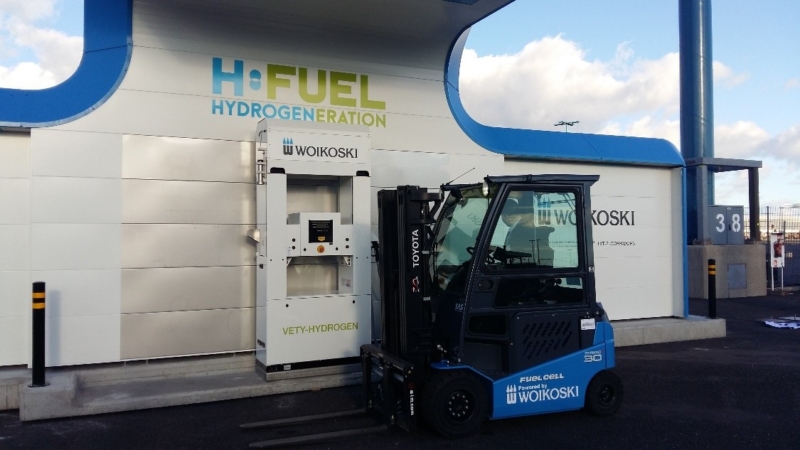 Fast refueling
One advantage of the drive technology quickly becomes clear: the refueling process with hydrogen takes just two minutes. This means that the forklifts are available for use in the factory halls almost without interruption.
1,300 employees at work
Toyota Material Handling Deutschland GmbH (TMHDE) is a company of the world’s largest industrial truck manufacturer Toyota Industries Corporation (TICO). TMHDE. In April 2007, the company emerged from the merger of Toyota Gabelstapler Deutschland and BT Deutschland. Toyota offers industrial trucks, intralogistics solutions and all product-related services through a dual distribution system with 15 dealers, six Toyota Forklift Centers and ten other branches. The spectrum ranges from hand pallet trucks to tugger systems and forklifts of all drive types to automated solutions. Including the dealer network, over 1,300 employees currently work for the company.
Fast refueling
One advantage of the drive technology quickly becomes clear: the refueling process with hydrogen takes just two minutes. This means that the forklifts are available for use in the factory halls almost without interruption.
1,300 employees at work
Toyota Material Handling Deutschland GmbH (TMHDE) is a company of the world’s largest industrial truck manufacturer Toyota Industries Corporation (TICO). TMHDE. In April 2007, the company emerged from the merger of Toyota Gabelstapler Deutschland and BT Deutschland. Toyota offers industrial trucks, intralogistics solutions and all product-related services through a dual distribution system with 15 dealers, six Toyota Forklift Centers and ten other branches. The spectrum ranges from hand pallet trucks to tugger systems and forklifts of all drive types to automated solutions. Including the dealer network, over 1,300 employees currently work for the company. 
